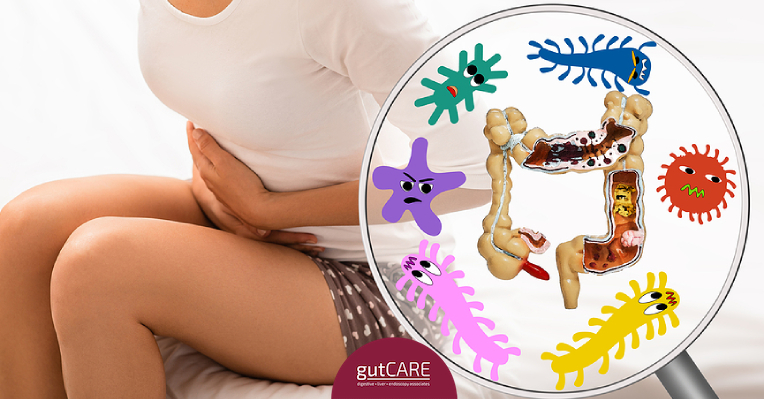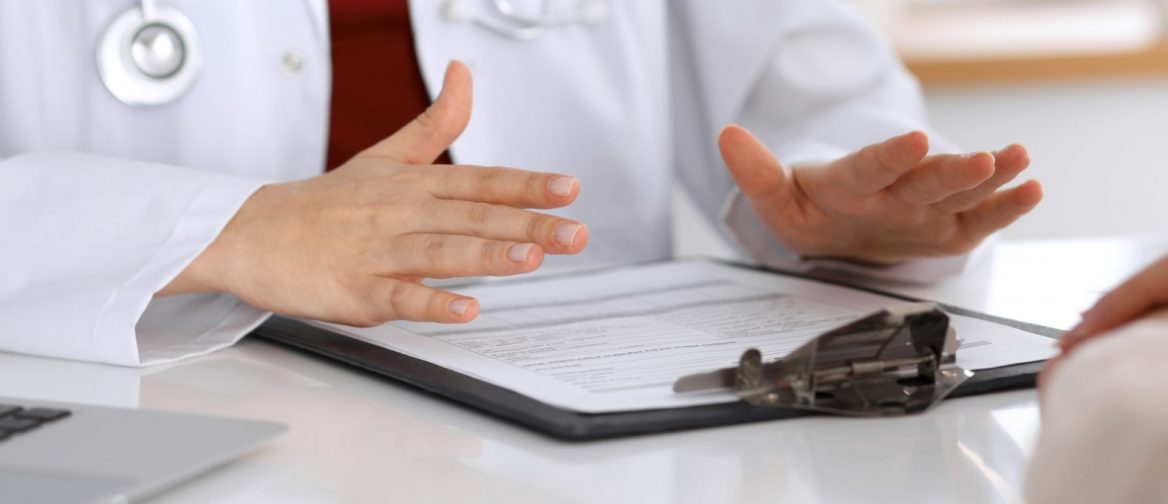Women’s Health: Experiencing Bloating & Abdominal Pain

Many women experience abdominal pain and bloating frequently and find it hard to manage. While the causes that lead to the development of bloating and abdominal pain are often multifactorial, a lot of them can be addressed during a visit to your gastroenterology specialist. In this article, discover when and why abdominal pain and bloating occurs and how you can manage your symptoms.
What causes abdominal pain and bloating?
Your gastrointestinal tract, consisting of your oesophagus, stomach, as well as small and large intestines. It is a long tube that stretches from your mouth to your anus.
When excess gas gets stuck anywhere in this tract, it often causes you feel bloated, resulting in it being hard to lie or sit down comfortably. You might also pass gas or burp constantly, which is often socially awkward or embarrassing
Here are some common causes of abdominal pain and bloating among women.
1. Ingesting too much air
This often happens when you consume food or drinks, especially carbonated ones, too quickly, chew gum, or smoke. Also known as aerophagia, this is a prevalent disorder that many women do not realise is the leading cause of their discomfort. There are no known causes of aerophagia as it is not a result of an intestinal blockage. However, with that being said, it is also common for women with aerophagia to suffer from other gastrointestinal disorders too.
Some signs and symptoms of aerophagia to note of are:
- Bloating
- Flatulence
- Abdominal discomfort or pain
- Belching
- Gurgling stomach
- Distended belly
Fortunately, this disorder can be improved with changes to your lifestyle, such as taking medication, avoiding carbonated drinks, eating slowly, undergoing speech therapy to minimise air ingestion and change the way you swallow, as well as practising breathing exercises.
2. Food sensitivities and dietary intolerances
Food sensitivities and intolerances can happen through different mechanisms but can cause bloating, diarrhoea, and nausea amongst other symptoms. Examples of food intolerances include fructose and lactose malabsorption. Lactose malabsorption and intolerance is due to the gastrointestinal tract being unable to produce the digestive enzyme called lactase necessary to break down lactose.Food sensitivities include those towards biogenic amines and sulphites. If you experience bloating and abdominal pain after consuming certain foods, try excluding them in your diet to see if there are any improvements in your symptoms.
3. SIBO or Small Intestine Bacterial Overgrowth
SIBO is a medical condition that can cause bloating, abdominal pain, and diarrhoea. SIBO occurs when there is a significant change in the gut microbiome, resulting in an overgrowth of bacteria in the small intestine. This condition can happen due to a variety of causes including surgery, blind loop syndrome and long term use of certain medications such as acid blockers. SIBO can be diagnosed through a simple breath test and can be treated with a course of antibiotics.
4. Irritable Bowel Syndrome (IBS)
Irritable Bowel Syndrome (IBS) should not be confused with Inflammatory Bowel Disease (IBD). Both conditions can cause abdominal bloating, abdominal cramp, abdominal pain and diarrhoea. Often further investigations are required to distinguish between the two conditions. IBS is generally benign but does impact people’s quality of life. Treatment includes adopting a low FODMAP diet or in some cases consuming more fibre. Inflammatory Bowel Disease or IBD is a chronic systemic inflammatory condition that requires long term treatment that may include steroids, anti-inflammatory agents or immuno-modulation and can result in more severe consequences if left untreated.
5. Hormonal imbalance and menstruation
Hormonal changes during a woman’s menstrual cycle can be associated with bloating and abdominal pain. Hormones help to regulate one’s appetite, temperature, metabolism, sleep and emotional well-being. During a menstrual cycle, a woman’s hormone levels fluctuate resulting in symptoms that may be due to changes in metabolism, inflammation and fluid retention.
What can alleviate your abdominal pain and bloating?
Depending on the exact cause of your discomfort, over-the-counter medication that consists of the active ingredient simethicone can help to reduce the bloating. Simethicone helps to treat chronic bloating and excess gas symptoms by breaking up the gas bubbles in your gastrointestinal tract. It is also crucial to keep track of the symptoms as well as the food you consume. Doing so helps you to know if it is food-related, menstrual-related, or if there are other causes.
If your symptoms persist or are worrying, talking to a medical professional or a gastroenterologist from GUTCARE is recommended for more specialised advice and treatment. It is also the best way to know if your symptoms are a sign of a condition that may be more serious.
Conclusion
Most abdominal bloating can be managed with appropriate diet and lifestyle changes. However, you should always consider visiting a doctor if your symptoms persist to get a more accurate diagnosis.

HAVE AN ENQUIRY?
You may also send in an enquiry via our online form if you have questions pertaining to your visit or consultation.

FIND OUT MORE ABOUT OUR DOCTORS
Unsure of which doctor to speak to? Take a look at our doctors’ profile to find out more.




